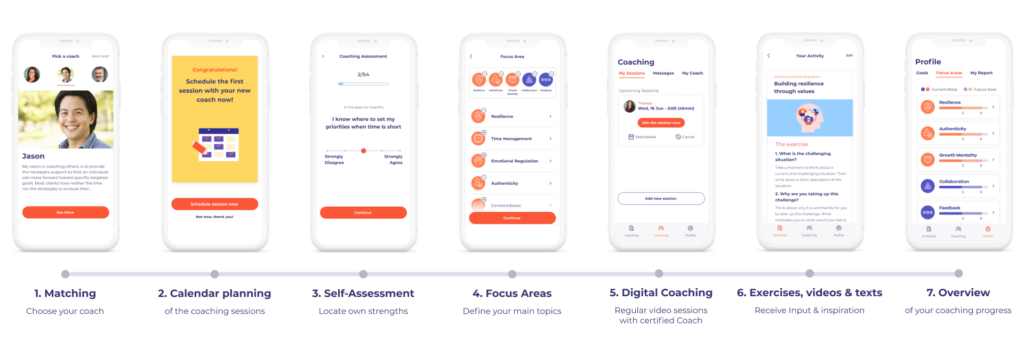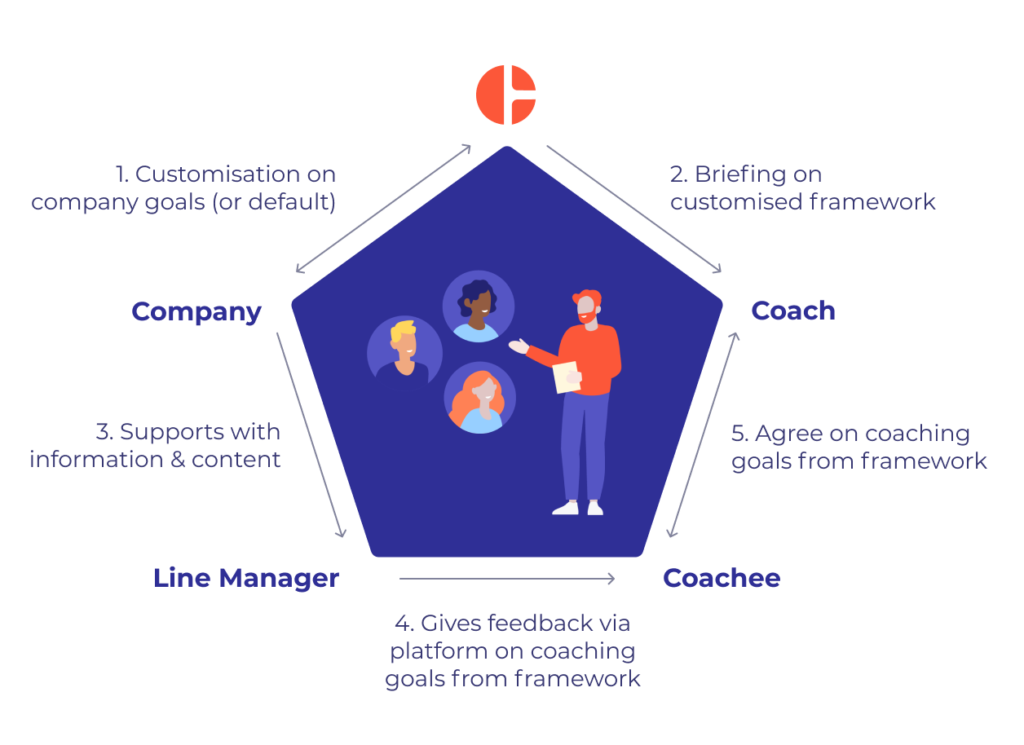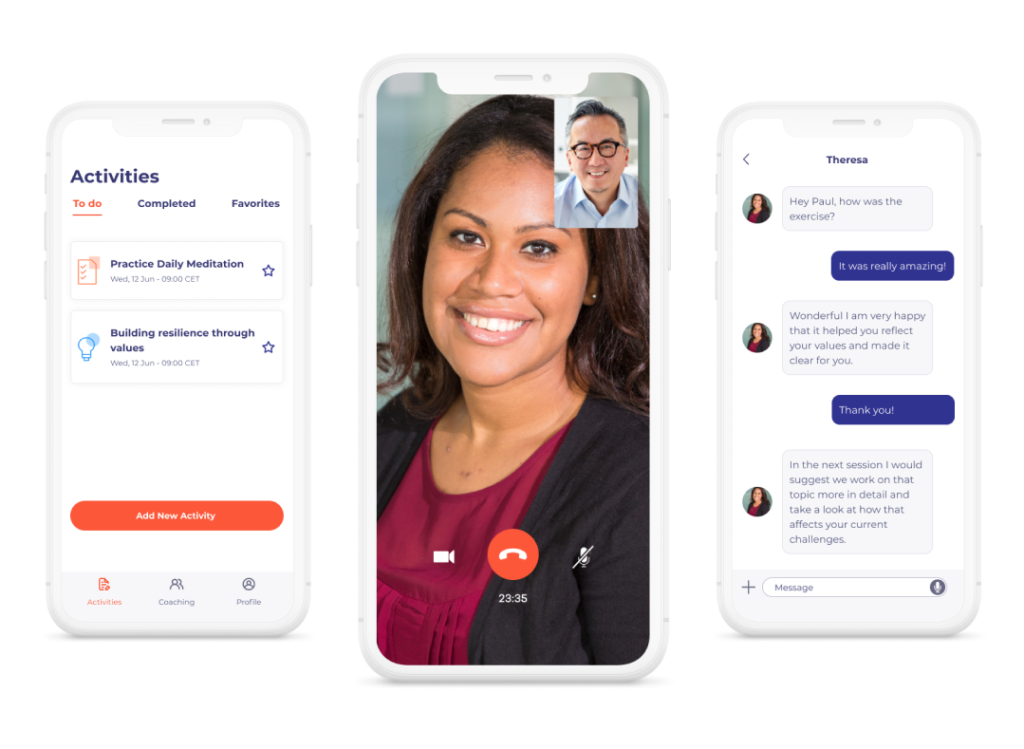
Rethink people development with remote coaching

Development and growth are a couple of factors that give people satisfaction at work. Feeling and being part of progress can be a rewarding experience, both professionally and personally. One of the most effective development tools is coaching, which has become more accessible through more user-friendly technology enabling it to go remote. Traditionally, coaching involved a company inviting a coach over for an in-person session with a group of its staff, usually those in the higher management level.
Digital coaching is becoming more sought after
With better connectivity and technology, remote coaching is becoming more sought after for organizations. It is more fitting for the current flexible workplace and a tech-savvy workforce that appreciates a more personalized touch.
Coaching is not mentoring. It is more structured and focused on specific target performance. It is not merely telling the people what to do; it facilitates learning and support to realize one’s potential by harnessing the unique character and their capabilities.
Previously, coaching was seen as limited – from having only English as the language of delivery, plus tedious coordination and planning. This drove up expenses as coaching had to be done in just a few sessions for a few select top-tier employees, on topics that may not be entirely relevant to all the attendees. Digital coaching changed all that by cutting out the logistical and planning nightmare by going online and opening up a pool of coaches and employees who can be involved in the process.

CoachHub customizes the coaching experience
Leading global talent development platform CoachHub, for example, has over 3,500 certified business coaches in 70 countries with sessions available in more than 60 languages.
In the APAC region alone, it has over 400 coaches and is growing, and counts Cantonese, English, Hindi, Japanese, Korean, Tamil, Tagalog, Thai, Malay, Mandarin, and Vietnamese among the language options it offers to clients.
Language preference is just the beginning of a more customized approach to coaching. Going online means a coachee can enjoy their session at the time, place, and via the medium of their choosing, be it from a laptop or mobile app.

Advanced technology and holistic framework
Advanced technology in the form of Artificial Intelligence also aids in matching a coachee with their ideal coach based on factors like the coach’s expertise and the business’s needs and requirements. CoachHub has developed a holistic coaching framework based on the science of behavioral change and positive psychology, through its own Coaching Lab which consists of highly skilled behavioral scientists and learning engineers. The approach is centered on personal growth and leadership through one-on-one continuous learning and development.
CoachHub goes a step further by having a Science Council of 12 prominent coaching experts from nine countries worldwide, including Dr. Suzy Green from Australia, Dr. Yi-Ling Lai from Hong Kong, and Lyra Puspa from Indonesia.
Mixed skills essential in a diverse workforce
“With the future of work constantly evolving in the ongoing COVID-19 pandemic, coaching has never been more important to train and support employees for them to reach their full potential,” said Tim MacCartney, Senior Vice President of CoachHub APAC, when launching its APAC headquarters in Singapore this month (15 February 2022).
“In the current age of digital transformation, and with companies focusing more and more on employee wellbeing, at CoachHub we believe that coaching helps individuals to gain their rightful place in their company, developing both personally and professionally through learning a mixture of soft and hard skills.”
This mixture of skills is essential as both the workforce and market are more diverse. There is a need to understand different cultures, abilities, beliefs, and visible and invisible identities. Upskilling, re-skilling, and learning must go beyond achieving business metrics to foster inclusive cultures that care for employees’ wellbeing.
This is even more important as employees, customers, and companies’ attitudes and priorities have shifted, as evident from the Great Resignation and, generally, a better understanding of mental health, diversity, equity, and inclusion.
MEGT deployed CoachHub for digital coaching
MEGT, an Australian non-profit organization supporting employers, apprentices, trainees, and jobseekers, deployed CoachHub for digital coaching in July 2021. The participants found that coaching helped them accomplish their chosen personal and professional goals, goals that were aligned with leadership development, career opportunities, personal motivation, and communication.
“The global reach of CoachHub provides a wide range of choices of coaches with different backgrounds and experience. There was a good level of support to help match the right coach with coachee and I have been grateful for the way my coach has challenged ideas and explored opportunities in a respectful way. The digital platform is easy to use with good flexibility for scheduling sessions to fit around any work or personal commitments,” said Tamina Koehne Drube, Staff Engagement Lead at MEGT.

Remote coaching develops employees into leaders
Remote coaching ranges from having a regular one-on-one live session to micro-learnings that involve personal homework like self-assessments and journal-ing exercises.
Coaching gives support to make changes happen. It provides the coachees the space and support to do their processing and self-reflection, inspiring them to change their behavior to become their best selves.
Request a demo now and see how the CoachHub digital coaching platform drives transformation by building a resilient and thriving workforce.
READ MORE
- 3 Steps to Successfully Automate Copilot for Microsoft 365 Implementation
- Trustworthy AI – the Promise of Enterprise-Friendly Generative Machine Learning with Dell and NVIDIA
- Strategies for Democratizing GenAI
- The criticality of endpoint management in cybersecurity and operations
- Ethical AI: The renewed importance of safeguarding data and customer privacy in Generative AI applications
